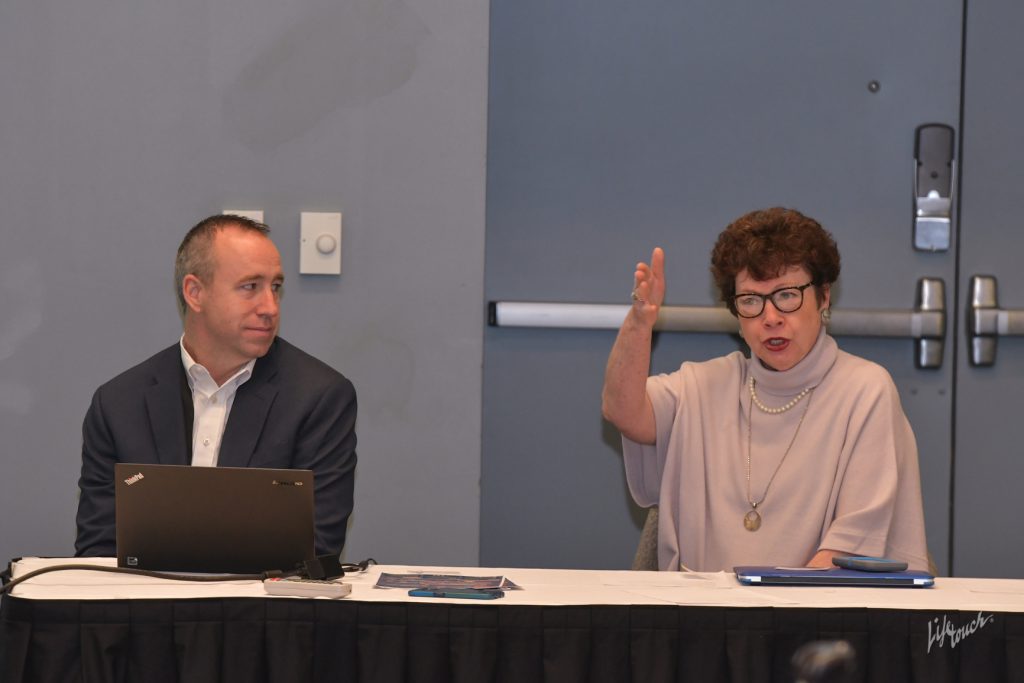Lexington County, S.C., School District One’s high school graduation rate exceeds 90 percent. On the surface, this looks like a strong, even exceptional outcome for the district.
Yet as Gloria Talley, chief academic officer, stated during a session on Saturday at AASA’s national conference when the district dug into its data, educators found students not graduating were largely those of color and English language learners.
“We need to have conversations on access and equity,” said Talley. “[As administrators], we need to have to the courage to talk about our beliefs and biases, so we can help these subsets of students graduate.”
Talley was joined by her colleague Ryan Pool, director of secondary schools.
He discussed four levers in the district’s strategy for improving graduation rates: opportunity and access; leadership development; transformative literacy and numeracy; and high-impact teaching and learning.
Talking about graduation rates and district strategies is not just a high school issue, Talley said. Districts need to begin discussing strategies in elementary school.
From participating in the conference over the past few days, Pool pointed out that a lesson learned was that the person who should always be part of this graduation rate conversation is the superintendent, and even the superintendent who served before the current one.
“Superintendents are the ones who drives these conversations,” said Pool. “They are the game changers.”
Rounding out the panel was Abner Oakes, director of outreach and partnerships at The Alliance for Excellent Education.
He offered a national perspective on the impact of graduation rates and how it can help students become college and career ready. He encouraged participants to use the alliance as a resource to obtain data on the state level and to build partnerships when doing this type of work.
He also encouraged participants to visit www.graduationeffect.org for more resources and data.
(Rebecca Shaw is a reporter for Conference Daily Online.)


